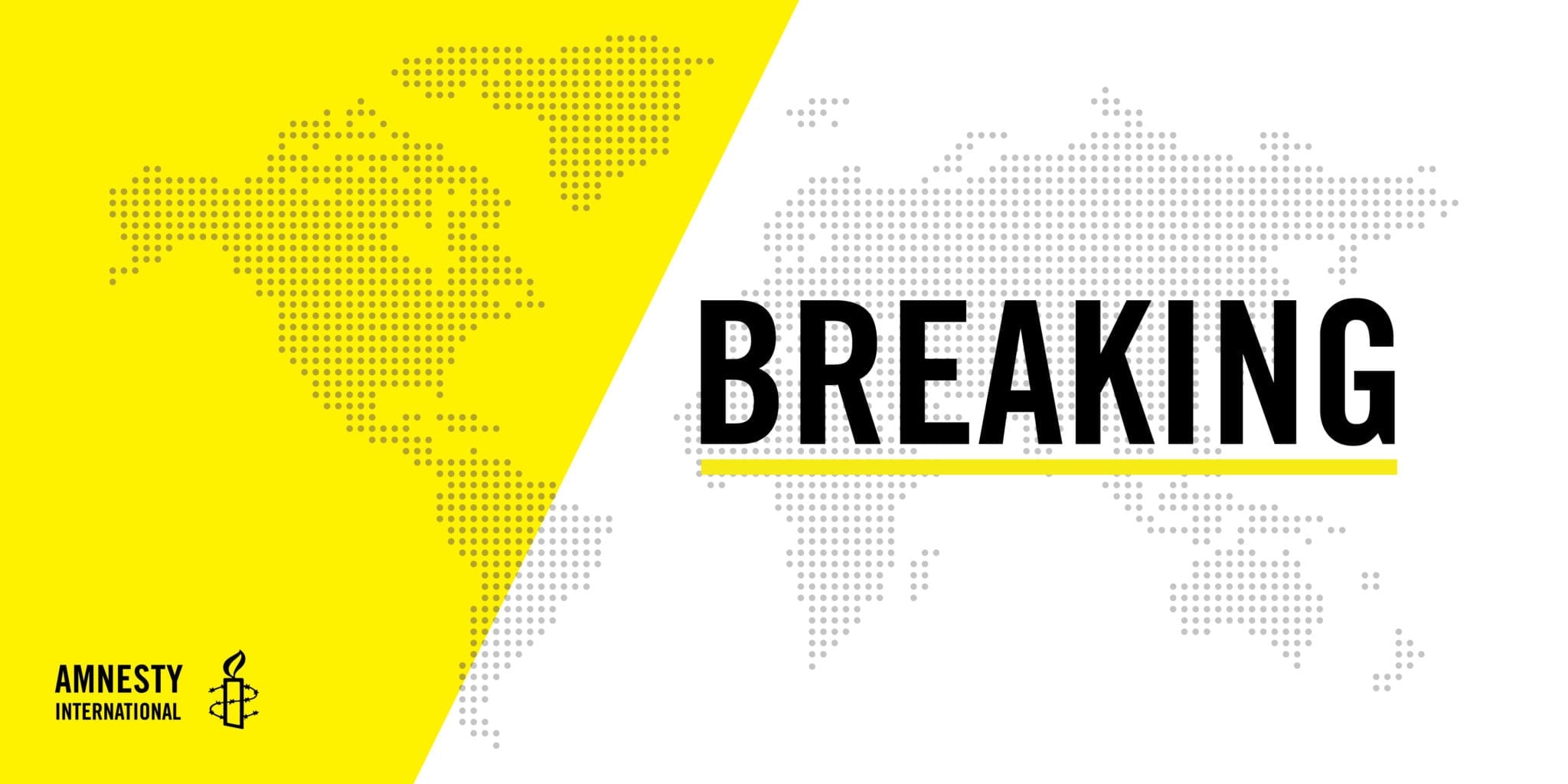The U.S. government should reverse its outrageous decision to revoke the visa of renowned human rights investigator Eyal Weizman, Amnesty International said today. The organization vigorously condemned the U.S. decision to revoke Eyal Weizman’s visa, and raised serious concerns about the practice of visa revocations based on problematic security algorithms.
“Stopping Eyal Weizman from entering the United States does a grave disservice to human rights documentation efforts,” said Margaret Huang, executive director of Amnesty International USA.
“It would be ludicrous to suggest that Eyal Weizman poses a security threat, and it’s an embarrassment for the U.S. to bar him.”
Eyal Weizman, the head of the London-based investigative agency Forensic Architecture, was scheduled to fly to Miami for the organization’s first major U.S. survey exhibition, opening today at Miami Dade College’s Museum of Art and Design (MOAD). Two days before he was scheduled to depart, he was informed by the United States embassy that his visa had been revoked.
When Eyal Weizman visited the embassy to reapply for a visa, an official there informed him that his authorization to travel had been revoked because an “algorithm” had identified a security threat.
“Invoking the results of an algorithm cannot disguise the spurious nature of this visa decision, and, in fact, it heightens our concerns about how the decision was taken,” said Margaret Huang. “This is ideological exclusion via algorithm, a troubling indicator of the bias and irrationality of the high-tech security state.”
The problems of discriminatory, opaque and unaccountable algorithmic decision-making are well known. Algorithms designed to predict so-called security risks could be used to arbitrarily flag certain groups, including human rights investigators, under a veneer of objectivity and accuracy. It is especially worrying to find algorithms making or influencing decisions that have such a powerful negative impact on the rights to freedom of expression, opinion, and association without meaningful human oversight or the ability to appeal.
As described below, Eyal Weizman and Forensic Architecture have done path-breaking work documenting grave human rights abuse committed by U.S. government actors, raising concerns that the decision to bar his entry is tainted by political bias.
The practice of ideological exclusion has a long history in the United States, having been used for decades as a political tool to keep U.S. audiences from being exposed to dissident viewpoints. During the Cold War, in particular, the US government denied visas to some of the world’s leading intellectuals, writers and artists who, the government thought, might promote Communism or other “subversive” views.
Eyal Weizman’s organization, Forensic Architecture, employs spatial analysis, digital forensics, and other cutting-edge research methodologies to document and expose human rights violations. Its work on behalf of communities victimized by state violence has been wide-ranging and effective. Among its projects have been investigations into Israeli war crimes in occupied Palestine, U.S. drone strikes in Pakistan, and police killings in Chicago.
The organization just announced a new investigation into the Homestead detention center in Florida, where migrant children have been held in what activists have described as “regimented, austere and inhumane conditions.”
A frequent collaborator with Amnesty International, Forensic Architecture was established in 2010, and is based at Goldsmiths, University of London.
“This is a stark example of how the ever-expanding web of surveillance combined with advanced data analytics is fueling unaccountable state power, bolstered by hidden algorithmic decision-making,” said Margaret Huang.

